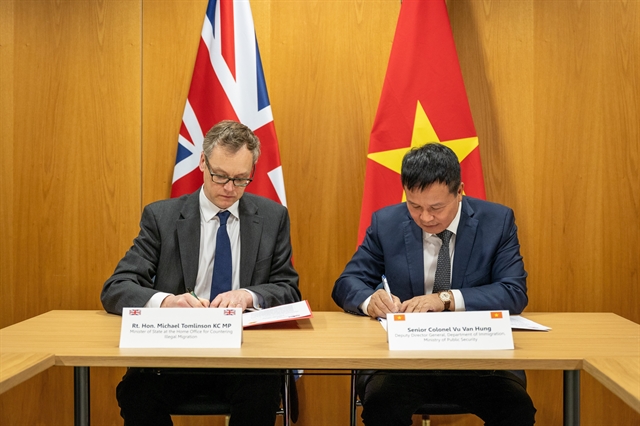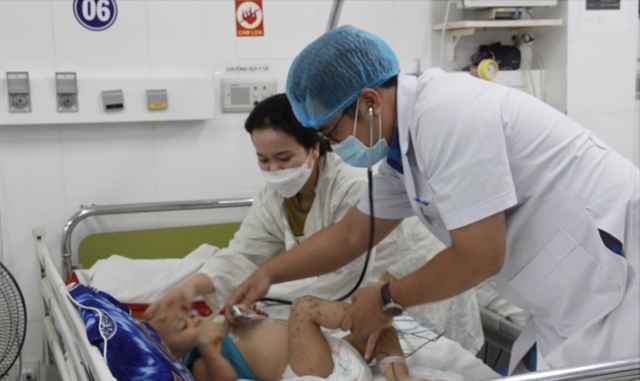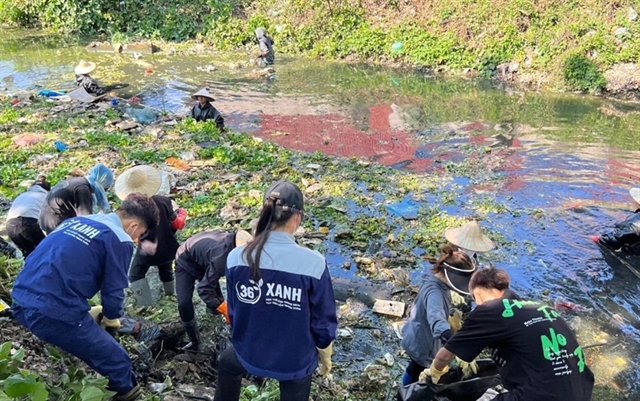.jpg) Society
Society

Over 30,000 people living in 10 underprivileged communes in Quảng Bình and Lâm Đồng provinces have received information on reproductive health and family planning from a three-year European Union-funded project.
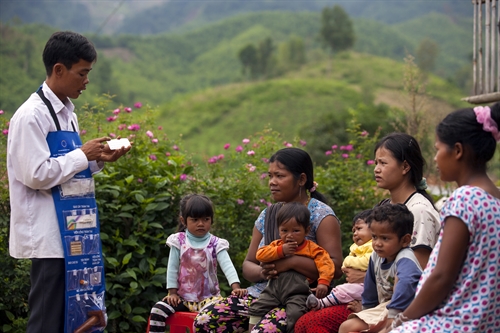 |
| A medical staff instructs the local people on contraception techniques and use. — Photos Marie Stopes International Việt Nam |
ĐÀ NẴNG — Over 30,000 people living in 10 underprivileged communes in Quảng Bình and Lâm Đồng provinces have received information on reproductive health and family planning from a three-year European Union-funded project.
The local representative of Marie Stopes International Việt Nam, an NGO that provides family planning services, said in the project summary event in Đà Nẵng recently that 94.2 per cent of participants who were of reproductive age had used a family planning service and utilised their community health stations, a 15 per cent increase from the project’s initial run.
She said most of the participants chose to have pregnancy examinations and give birth, and 82.6 per cent of the women received gynaecological examinations at community health centres.
“It’s a significant achievement as the project aims to fill up the gap in information and high-quality service and provide an informed approach for residents in underprivileged communes in the two provinces,” Hằng said.
She said local residents in impoverished and isolated areas could not access reproductive health care and family planning services due to receiving poor service or being deterred by the attitude of the medical staffs.
She said the project focused on improving the level of service, the equipment and the opportunities for local people to easily access the services.
Hằng also said over 23,000 clients had utilised these high-quality services, of which 1,100 had intrauterine devices implanted at communal health centres, with satisfaction levels reaching 87-88 per cent.
The project, with total funds of US$709,000---75 per cent of which came from the European Union---also helped 20,000 women from ethnic minorities in 10 communes of the Đam Rông and Minh Hóa districts in Quảng Bình and Lâm Đồng provinces. The women benefitted from improved family planning and reproductive health services due to the more open, transparent and inclusive policy-making and accountability process.
Cao Thế Cảnh, a member of the accountability monitoring board at Hòa Tiến Commune in Quảng Bình Province, said the project encouraged the local people to seek out reproductive health and family planning services by making the process more convenient and offering enthusiastic, well-mannered medical staff.
Marie Stopes International Việt Nam supports 11 obstetric-gynaecological and family planning clinics as well as networks of social franchised clinics in 31 provinces nationwide.
In 2015, 2.7 million clients visited clinics in these networks, creating 3.6 million CYPs (Couple-Years of Protection).
Hằng said Marie Stopes International Việt Nam was committed to collaborating with Việt Nam to assist in sustaining and meeting the reproductive health and family planning targets of the Vietnamese people.
According to the General Department of Population and Family Planning under the Ministry of Health, efforts were made to control the birth rate in Việt Nam between 1945 and 2014, resulting in a population today of some 90.5 million, 20 million lower than previous estimates. — VNS

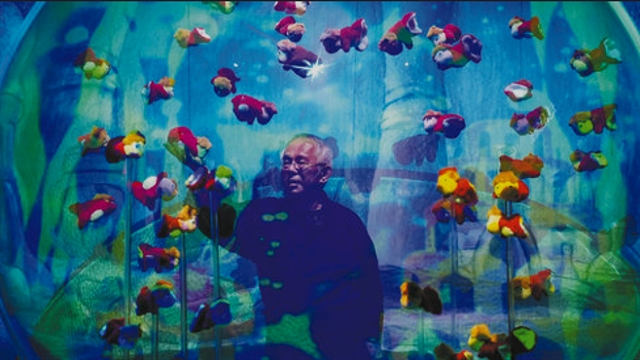
.jpg)


